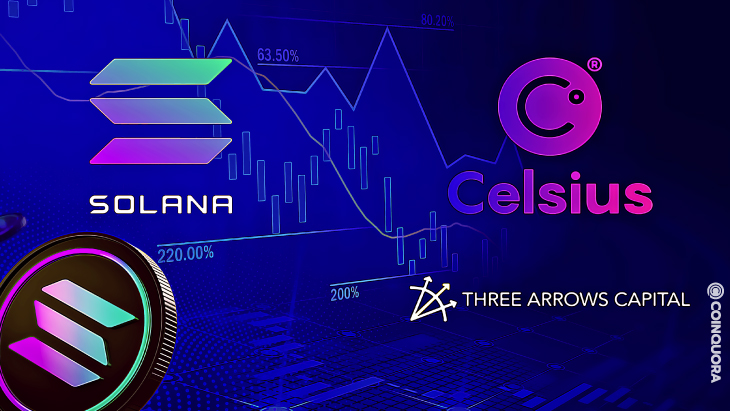- Crypto analyst Miles Deutscher states that SOL’s price is at stake following the Celsius and 3AC tank.
- In a Twitter thread, Deutscher explains the reasons for his conclusion.
- The analyst also raises an important question regarding decentralization and user protection.
Crypto analyst Miles Deutscher has said in a recent Twitter post that SOL’s price is at stake following the Celsius and 3AC tank. In a 21-post thread, the popular crypto investor details the reasons for this conclusion.
“After Celsius and 3AC tanked the market, another concerning event has started to emerge,” begins the post.
After Celsius and 3AC tanked the market, another concerning event has started to emerge.
With nearly a billion dollars of liquidations on the line, the price of one of crypto’s largest L1s is at stake.
🧵: What’s happening to $SOL and @solendprotocol, and why you should care.👇
— Miles Deutscher (@milesdeutscher) June 20, 2022
The analyst explains that at the moment there are three major liquidations. Among these, the SOL situation appears to be the most intriguing one to Deutscher. The reason is that a major SOL whale deposited $160m on the Solend protocol to borrow $108m.
As this position creeps closer to liquidation, it began to trigger fears that user funds could be put at risk. Solana’s recent instability lends itself to potential issues amidst a mass liquidation event. Additionally, user funds could be vulnerable due to high slippage.
Deutscher adds that, in response, the Solend protocol decided to reach out to the whale to negotiate a solution. However, the whale did not respond. Reportedly, Solend then issued a proposal to grant emergency power to temporarily take over the whale’s account. As expected, this move was not well received.
If we learnt (sic) anything from the Celsius and 3AC situations, it’s that on-chain transparency is a much-needed component of the crypto financial ecosystem. This is the exact problem that DeFi is intended to solve.
However, 97.5% voted yes to the decision despite the backlash. But over 90% of the votes were issued by a single user. The fate of $270 million in user assets is thus being decided by a single entity. Deutscher claims that this is a fundamental flaw in the system, as voting power is decided by DAO holdings.
Deutscher further theorizes that this decision led to further division in the community. And Solend protocol rushed to fix their mistake by invalidating this one vote. But then he asks the question: “What’s the point of a DAO if proposal outcomes aren’t adhered to?”
The analyst argues that this is the classic case of need versus want in crypto. “What we want is decentralization, but what we need (in this case) is user protection.”


